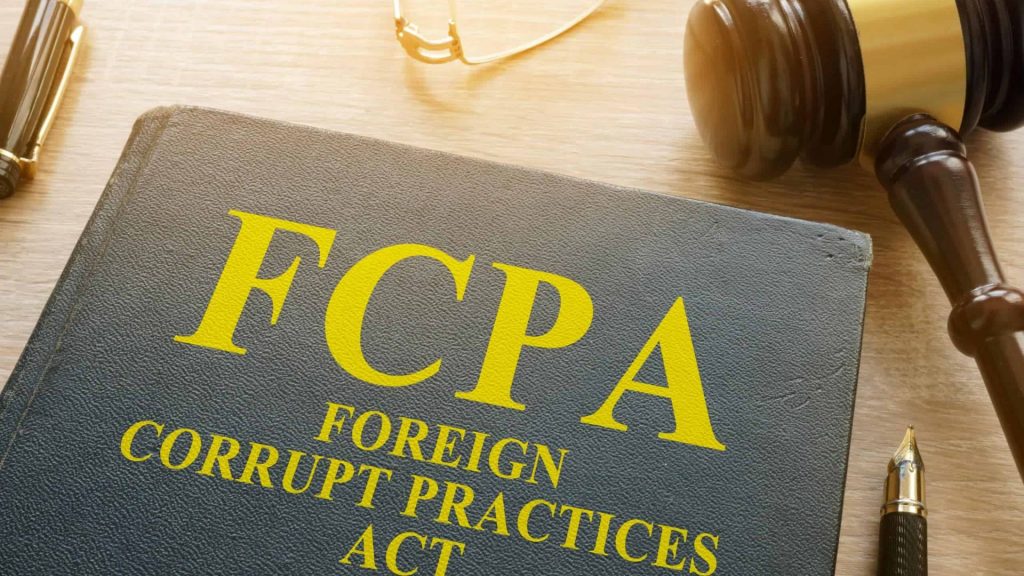
In a world increasingly marred by corporate misconduct and political complicity, the Trump administration’s decision to effectively suspend the enforcement of the Foreign Corrupt Practices Act (FCPA) stands out as a staggering abdication of moral leadership.
By retreating from this critical anti-corruption framework, Washington sent a clear and troubling message: Multinational corporations could engage in bribery and corruption abroad with little fear of consequence. Among the clearest beneficiaries of this deregulatory turn are entities like the Adani Group, a commodity-trading business with investments in mining, weapons and natural gas, whose questionable business practices have thrived in an environment devoid of robust oversight. The Trump-era erosion of FCPA enforcement did not merely weaken America’s credibility on the world stage—it actively fueled a climate where the corrupt prosper unchecked.
Undermining a Legal Pillar of U.S. Integrity
In February, President Donald Trump issued an executive order initiating a 180-day pause of the FCPA, the 1977 law that prohibits people and companies from bribing foreign officials to gain or retain business. The legislation set a powerful precedent, influencing anti-corruption laws globally, which has led to a more coordinated cross-border approach to combating bribery and corruption.
The Department of Justice (DOJ), under Attorney General Pam Bondi, has “reprioritized” its resources, moving away from corporate corruption and fraud cases.
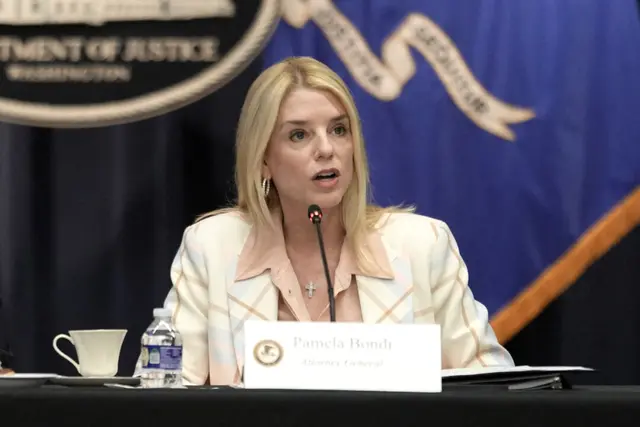
Key task forces such as the National Security Division’s Corporate Enforcement Unit and the Kleptocracy Asset Recovery Initiative have been disbanded. These units previously played a critical role in enforcing the FCPA and recovering assets linked to corruption. By reallocating resources to combat illegal immigration, drug cartels, and cyber threats, the DOJ has effectively reduced its capacity to pursue white-collar crime.

“This is not just a rollback. This is a retreat,” said Gary Kalman, executive director of Transparency International U.S., in a statement following the order. “Suspending the FCPA diminishes—and could pave the way for eliminating—the crown jewel in the U.S.’s fight against global corruption.”
A Signal to Corrupt Actors?
One immediate beneficiary of this regulatory retreat appears to be the Adani Group, a sprawling Indian conglomerate whose rapid ascent has been clouded by controversy.
Investigations in Australia and India have uncovered troubling patterns: opaque offshore networks, political favoritism in acquiring infrastructure contracts, and aggressive legal tactics to silence critics.
“The suspension creates an enforcement vacuum,” said Daniel Kahn, former chief of the DOJ’s FCPA unit. “It tells companies like Adani that they can operate in the gray zones without fear of American scrutiny.”

In India, critics of the Modi government—which maintains close ties to Adani—have already voiced concern that U.S. disengagement from anti-corruption enforcement will weaken local reform efforts and embolden cronyism.
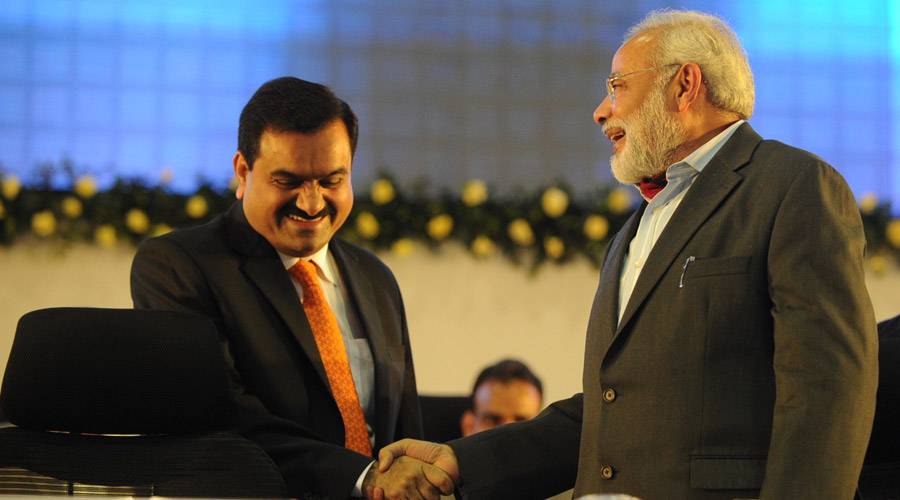
The story of Adani’s unbridled expansion is more than a cautionary tale. It is a grim reminder that corruption, when left unchecked, metastasizes—weakening democracies, distorting markets, and emboldening autocrats.
For critics, the timing of the pause could not be more troubling. From Brazil to Nigeria to India, anti-corruption efforts are facing headwinds, often led by authoritarian governments hostile to transparency. The Trump administration’s move, experts say, could embolden corrupt officials abroad and the companies willing to do business with them.
“The chilling effect is already being felt,” said Sarah Chayes, former anti-corruption adviser to the Joint Chiefs of Staff. “Foreign officials once cautious about accepting bribes from U.S. firms now assume it’s back to business as usual.”

When American Trust Falters
Domestically, Trump’s order has deepened fears about the erosion of institutional integrity.
Transparency International downgraded the United States further in its Corruption Perceptions Index just weeks after the executive order. Civic groups warn that, by undermining the rule of law abroad, the administration risks normalizing corporate malfeasance at home.
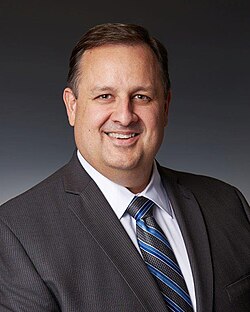
“This is about much more than foreign deals,” said Walter Shaub, former director of the Office of Government Ethics. “If bribery becomes just another cost of doing business globally, it seeps back into American political and corporate culture too.”
The suspension has also exposed rifts within the business community. While some multinational executives privately welcome looser constraints, many fear long-term reputational damage. Firms that continue to uphold rigorous compliance standards now face competitive disadvantages, while opportunistic actors seize short-term gains.
The Trump administration insists that it can restore enforcement after 180 days without lasting damage. Experts are skeptical.

“Deterrence doesn’t come with an on-off switch,” said Judge Mark Wolf, founder of Integrity Initiatives International. “If you suspend the FCPA even temporarily, you invite bad actors to move swiftly, before the window closes. The harm is done the moment the rules are questioned.”
Already, signs of erosion are visible. In Latin America, where the FCPA had been a crucial backstop against entrenched corruption networks, officials report increased pressures on companies to engage in bribery. Reformers in Southeast Asia warn that Washington’s retreat strengthens authoritarian regimes, which interpret America’s inconsistency as license for further abuses.
For decades, U.S. enforcement of the FCPA was not just about law; it was about credibility. In diplomacy, trade and development, American officials often leveraged anti-corruption commitments as part of broader alliances. That leverage is slipping away.
The High Cost of “Looking the Other Way”
Restoring the FCPA’s authority—even if Trump’s suspension is lifted on schedule—will not be easy. Legal scholars point out that every day of non-enforcement deepens the culture of impunity and complicates future prosecutions.
“The real risk isn’t just corporate misbehavior—it’s systemic cynicism,” said Eileen Lainez, senior fellow at the Center for Strategic and International Studies and a marketing and communicaitons director with the defense contractor L3Harris. “The belief that rules are optional, that enforcement is political. Once that belief spreads, it corrodes both markets and democracies.”
The Adani Group’s potential windfall is a cautionary tale. So, too, are the quiet boardroom conversations now happening around the world: If America is no longer serious about fighting corruption, why should anyone else be?
America once championed the idea that markets should be free but fair—that success should come from merit, not illicit advantage. Trump’s pause on the FCPA risks reducing that noble aspiration to just another slogan, discarded when inconvenient.
In a turbulent global era, abandoning anti-corruption norms is not a show of strength. It is an invitation to chaos—and America, like the world, will not escape the consequences.

CovertAction Magazine is made possible by subscriptions, orders and donations from readers like you.
Blow the Whistle on U.S. Imperialism
Click the whistle and donate
When you donate to CovertAction Magazine, you are supporting investigative journalism. Your contributions go directly to supporting the development, production, editing, and dissemination of the Magazine.
CovertAction Magazine does not receive corporate or government sponsorship. Yet, we hold a steadfast commitment to providing compensation for writers, editorial and technical support. Your support helps facilitate this compensation as well as increase the caliber of this work.
Please make a donation by clicking on the donate logo above and enter the amount and your credit or debit card information.
CovertAction Institute, Inc. (CAI) is a 501(c)(3) non-profit organization and your gift is tax-deductible for federal income purposes. CAI’s tax-exempt ID number is 87-2461683.
We sincerely thank you for your support.
Disclaimer: The contents of this article are the sole responsibility of the author(s). CovertAction Institute, Inc. (CAI), including its Board of Directors (BD), Editorial Board (EB), Advisory Board (AB), staff, volunteers and its projects (including CovertAction Magazine) are not responsible for any inaccurate or incorrect statement in this article. This article also does not necessarily represent the views the BD, the EB, the AB, staff, volunteers, or any members of its projects.
Differing viewpoints: CAM publishes articles with differing viewpoints in an effort to nurture vibrant debate and thoughtful critical analysis. Feel free to comment on the articles in the comment section and/or send your letters to the Editors, which we will publish in the Letters column.
Copyrighted Material: This web site may contain copyrighted material the use of which has not always been specifically authorized by the copyright owner. As a not-for-profit charitable organization incorporated in the State of New York, we are making such material available in an effort to advance the understanding of humanity’s problems and hopefully to help find solutions for those problems. We believe this constitutes a ‘fair use’ of any such copyrighted material as provided for in section 107 of the US Copyright Law. You can read more about ‘fair use’ and US Copyright Law at the Legal Information Institute of Cornell Law School.
Republishing: CovertAction Magazine (CAM) grants permission to cross-post CAM articles on not-for-profit community internet sites as long as the source is acknowledged together with a hyperlink to the original CovertAction Magazine article. Also, kindly let us know at info@CovertActionMagazine.com. For publication of CAM articles in print or other forms including commercial internet sites, contact: info@CovertActionMagazine.com.
By using this site, you agree to these terms above.
About the Author

Rachael Gonzalez was born in the Philippines and grew up in Singapore.
She graduated from Nanyang Technological University(NTU), where she majored in public policy and global affairs. Her primary focus was on policy analysis related to the United States’ engagement in the Asia-Pacific region.
She is particularly interested in Southeast Asia and South Asia issues and passionate about understanding the complexities of regional dynamics and their global implications.
Rachael can be reached at hedbanirachael@gmail.com.



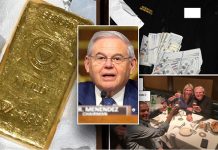


. Jimmy Carter will not happy about this:
The Foreign Corrupt Practices Act (FCPA) was created by the United States Congress. It was enacted in 1977 in response to numerous scandals involving US companies bribing foreign officials to secure business contracts. The FCPA was signed into law by President Jimmy Carter on December 19, 1977. The FCPA was designed to address these issues by making it illegal for US companies and individuals to bribe foreign officials.
It seems ironic that we would have laws against international corruption while the national corruption in the US is so rampant. Our elected govt. is like a pair of pants, they get dirty so you have to get a clean pair every so often. Like with actual pants, the important stuff is well hidden and never changes. The unelected bureaucracy has become a corrupt monolith; you can’t work there and not be corrupt. Unfortunately, no one has come up with a system that will remain honest indefinitely without intense vigilance by the general population.